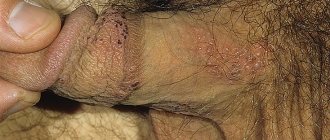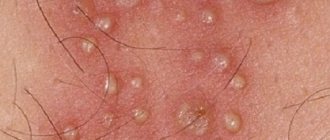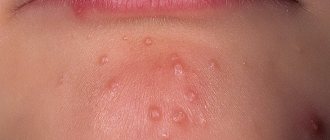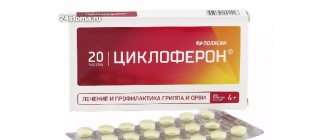Genital herpes virus – how long does the disease last?
The content of the article
Genital herpes in men and women is one of the most commonly diagnosed sexually transmitted diseases, caused by the herpes simplex virus type HSV-1 or HSV-2. For many people, the disease is completely asymptomatic. And this does not prevent the virus from being transmitted during sexual intercourse.
Possible symptoms of genital herpes are well known to doctors. There is slight pain, changes on the skin resemble blisters. They are visible in the genital area, in the perineum.
The first wave of symptoms can last 2-3 weeks, sometimes less. In some cases, herpes symptoms may recur, but they are usually less bothersome than the first time.
Antiviral medications relieve the discomfort felt. Patients with chronic symptoms need to take medications every day.
Genital herpes - what is it?
Genital herpes is a viral infection that affects the penis in men (penile herpes) and the vulva and vagina in women (vaginal herpes, herpes on the labia), as well as the area around the genitals. Sometimes herpes can also appear on the buttocks and anus.
This disease is caused by the herpes simplex virus. There are two types of herpes simplex virus: herpes simplex virus type 1 and herpes simplex virus type 2.
- Herpes simplex virus type 1 is usually responsible for cold sores on the lips. It is caused by half of the cases of genital herpes.
- Herpes simplex virus type 2 is responsible almost exclusively for the development of genital herpes. Sometimes an infection can result in cold sores on the lips.
Genital herpes - how can you get infected?
Genital herpes is transmitted mainly through contact with a person who is already a carrier of the virus. The mucous membrane lining the mouth, genitals and anus is very susceptible to infection. That is, the virus most often passes from one person to another during sexual intercourse (including oral).
The herpes simplex virus can also enter another person's body through wounds or cracks in the skin on other parts of the body: fingers, hands, knees, etc., as long as the contact touches an infected area of skin. Re-infection with your own virus through accidental touch is unlikely.
Transmission of herpes from the mouth to the genitals during oral sex can occur when one of the partners develops symptoms of herpes on the lips.
Features of treatment for pregnant women
The herpes virus poses the greatest danger to pregnant women; it can cause serious disruptions during pregnancy and provoke the appearance of abnormalities and deformities in the unborn child. Therefore, in the acute form, especially if it is a primary infection, you need to start treatment as quickly as possible. During pregnancy there are some nuances during therapy.
Acyclovir and its analogues are used only in exceptional cases due to possible harm to the pregnant woman and the fetus. The following drugs are used with caution:
- Panavir;
- Zovirax;
- Vivorax and others.
The acute phase immediately before childbirth is dangerous, including. As long as the fetus is inside the womb, infection is unlikely. Most newborns become infected during childbirth, passing through the birth canal or touching the mother's genitals. Therefore, if an exacerbation or relapse occurs at the expected time of delivery, a cesarean section is offered.
Genital herpes - symptoms
The first infection with the herpes simplex virus is often called the primary infection. Such an infection may (but does not necessarily) cause symptoms.
After the initial infection, the virus is not eliminated from the body, but lives in it in an inactive form. In some patients, the virus occasionally wakes up and moves to the surface of the skin. This, in turn, provokes a relapse of symptoms of genital herpes if the primary infection concerned the genitals, or a recurrence of herpes lips if the primary infection developed in the mouth area.
Most people have no symptoms after contracting the sexual herpes virus; 8 out of 10 people with genital herpes don't even know they have it. Sometimes only very mild symptoms may appear that are difficult to associate with genital herpes.
These symptoms may include a slight burning sensation or a slight redness that quickly disappears. In such people, the virus sleeps and never causes a wave of symptoms to recur. However, even people who develop the disease asymptomatically pose a threat to their sexual partners. In fact, this is how most cases of genital herpes infection occur.
Prevention
To prevent the disease from occurring after therapeutic treatment, it is necessary to adhere to preventive standards:
- use contraceptives;
- monitor the hygiene of the intimate area;
- undergo preventive examinations from a specialist;
- exclude the possibility of sexual intercourse if there are rashes on the genitals;
- maintain a healthy lifestyle, eat well;
- strengthen the immune system;
- during the season of exacerbation, you can use immunomodulatory suppositories.
Not a single type of treatment, even the most effective, can completely eliminate the virus from the body, and therefore it is important to carefully follow preventive measures, not to have sexual relations before the age of 18 and to avoid unprotected acts.
Genital herpes - first symptoms
At the very beginning, symptoms of genital herpes infection take the form of slightly elevated body temperature, general pain and malaise. Small groups of painful blisters appear around the genitals or anus. Herpthetic changes can be visible on the labia, on the clitoris, near the entrance to the vagina, on the thighs, around the anus.
The blisters take another 1-2 weeks to grow before bursting and turning into shallow, painful ulcers. The lymph nodes in the groin may become enlarged and palpable as lumps in the upper legs. Frequently, urination is associated with pain, especially in the case of women who experience vaginal discharge.
Women also experience blisters and sores on the cervix. Blisters and sores usually develop within 10 to 20 days and then gradually disappear without leaving a scar. Sometimes symptoms appear in just a few days.
The first symptoms of genital herpes appear months or even years after infection. Therefore, the first wave of symptoms may occur when a person has sexual intercourse with only one regular partner. There is a possibility that the infection occurred months or years earlier as a result of sexual contact with a previous partner or a partner who did not know that he carried the virus.
It is not entirely clear why some people have symptoms of infection and others do not, or why the first wave of symptoms occurs months or years after the actual infection. This may be due to the immune system's response to the virus.
Genital herpes - relapses
Some people experience recurrences of genital herpes symptoms. Scientists cannot explain why an inactive virus wakes up from time to time. Relapses are often milder and last shorter than the first wave. In case of relapses, symptoms usually occur within 7-10 days.
Most people do not complain of fever or malaise. Mild tingling or itching of the genitals for 12–24 hours may indicate a recurrence of symptoms of the disease. The intervals between individual relapses vary.
Over time, relapses of genital herpes appear less frequently. Relapse rates may vary among people already dealing with them. Some people experience them 6 or more times a year, while others experience them much less frequently.
As a rule, in the first 2 years after the first wave of symptoms, relapses occur 4 to 5 times. Some people do not relapse at all. Sometimes it is possible to identify factors that cause symptoms to recur. These could be: sunburn, physical illness, excessive alcohol consumption, stress.
Antiviral agents
Antiviral drugs differ in composition and active ingredients, so a competent specialist must choose a drug for the treatment of genital herpes.
- Famciclovir (Famvir) is a very powerful drug that can cope with those strains of the virus that cannot be treated with acyclovir. But these drugs are toxic and have many side effects, so they should be taken exactly as recommended by your doctor. When treating genital herpes, the standard daily dose is three tablets (250 mg each). It is recommended to take the drug for a week. If treatment is started late, a single dose of 6 tablets is allowed or this dose can be divided into two doses.
- Acyclovir for herpes (analogues of Zovirax, Vivorax). Antiviral drugs that are highly effective against the herpes simplex virus. The active ingredient is acyclovir. The regimen of use and dosage of medications is determined by the attending physician depending on the severity of the symptoms, the general picture of the disease and the patient’s condition. When treating genital herpes, it is recommended to start taking acyclovir-based tablets after the first alarming signs appear and continue therapy for 5-7 days. Usually up to 5 tablets per day are prescribed (daily dose 800-1000 mg); in immunodeficiency states, the doctor may double the dose.
- Valacyclovir (Valtrex). This is a modern drug based on an acyclovir derivative. The active ingredient, valaciclovir, has the highest activity against the herpes virus and is much better absorbed by the body. The drugs should be taken twice a day, 500 mg at a time. To achieve a lasting therapeutic effect, 5 days of treatment are sufficient.
To treat lesions, the doctor will prescribe antiviral drugs in the form of an ointment or gel. Their use allows you to relieve painful symptoms, eliminate inflammation, swelling and itching. The following medications are used in the treatment of genital herpes:
- Levomekol. This is an excellent remedy for mild forms of genital disease. Eliminates burning sensation and soothes itching within 40 minutes. Ingredients: levomethicin, methyluracil, macrogol, polyethylene oxide. Directions for use: Apply a thin layer to rashes 3 times a day. Has a greasy texture. For women, apply by soaking a gauze pad with ointment. Place on the labia or in areas of rashes. Wear underwear on top. Contraindications: sensitivity to components. The period of pregnancy and lactation in women. Children's age up to 1 year.
- Herpferon (ointment). A combination drug that includes interferon, the antiviral component acyclovir and the anesthetic lidocaine, which effectively eliminates pain. The use of ointment can reduce unpleasant symptoms in the acute phase of genital herpes. For mild forms of infection, the drug can be prescribed as monotherapy and used for 5-6 days.
- Panavir. This remedy helps cure inflammation of the genitals at the very beginning of the disease. Promotes the production of interferon by the body. Ingredients: Nightshade extract, water, glycerol, lanthanum nitrate, ethanol, sodium hydroxide, macrogol. Directions for use: use on lips or intimate area. Apply a thin layer to the area affected by herpes. A day from 3 to 5 times. Contraindications: the drug is easily tolerated and therefore has virtually no contraindications. Not recommended for people with hypersensitivity to the components included in the ointment. Allergic reactions may occur.
In addition, Zovirax and Acyclovir ointments show good effectiveness in the treatment of genital herpes. They should be used 4 to 6 times a day, treating rashes every 4 hours.
What tests should be taken for genital herpes?
As a rule, no additional research is required. The pattern of lesions, their location and other symptoms are sufficiently characteristic to make a diagnosis of genital herpes. In case of doubt and for invasive infections, the gynecologist prescribes:
- Culture analysis
. Isolation of the virus from a cell culture requires taking a smear from the lesions, but the absence of the virus in the culture (negative result) does not exclude infection; - PCR method
. Requires taking smears from lesions. The method is more sensitive than isolation in detecting infection, but a negative result does not rule out infection. - Serological tests
. They allow you to detect antibodies to the HSV virus (they appear after a few weeks) and differentiate the type of virus that caused the infection. If an antibody to HSV-2 is detected, genital herpes is detected and thus increases the risk of recurrence in that location. Antibodies to HSV-1 indicate infection with herpes labialis, and thus the risk of recurrence of lesions in the genital area is lower.
The influence of HIV infection on the incubation period of herpes
Another common question is how the duration of incubation changes during HIV infection.
There is nothing surprising in such a question.
After all, the human immunodeficiency virus is becoming increasingly common in medical practice today.
Much in this case depends on how strongly the patient’s immunity is suppressed.
For example, if a patient regularly takes HIV medications and his lymphocyte levels remain normal, the incubation period may remain within the standard range.
If the patient ignores the doctor’s recommendations and refuses medications, the level of his defense system drops to catastrophic levels.
The result is predictable: the period of time is greatly shortened.
The disease makes itself felt much earlier than if HIV were controlled or completely absent from the body.
Treatment of genital herpes with ointment - how effective is it?
A number of medications are used to treat and relieve symptoms of genital herpes.
Over-the-counter painkillers such as paracetamol and ibuprofen can help relieve pain. If there is pain when urinating, it is recommended to take a warm bath.
Anesthetic ointment for genital herpes with iceocaine relieves itching or pain. You can lubricate the skin with ointment 5 minutes before urinating to relieve pain. Some patients may be allergic to the pain-relieving ointment, and using such a drug may worsen symptoms. Instead of anesthetic ointment, you can rub Vaseline into the skin before urinating.
Which doctor will help if herpes infection cannot be avoided?
Which doctor should I contact if I still couldn’t avoid a collision with the disease and there is a suspicion of incubation?
This is a very popular question among patients.
This is not surprising, because different types of herpes can be dealt with by different specialists.
If a person has signs of the genital form of the disease, it is worth visiting a venereologist first.
This doctor will be able to prescribe the necessary tests and give recommendations for therapy.
If you suspect infection with the labial form, you can go to a dermatologist, infectious disease specialist, or just a general practitioner.
Any of these doctors will be able to treat the infection using a variety of medications.
Everything is more complicated with the shingles form of the disease.
In this case, it is necessary to contact infectious disease specialists.
They may even decide that the patient needs to be admitted to hospital.
Drugs for genital herpes
Antiviral drugs, such as acyclovir, do not remove the virus from the body. Their goal is to inhibit (suppress) the process of its reproduction. These types of medications are most effective during the first episode of symptoms. They reduce symptoms and their duration - provided that therapy is started within 5 days of the onset of the first symptoms.
Treatment for genital herpes usually lasts 5 days, but it can be extended if the blisters are still present.
Antiviral medications for herpes may not be needed while treating relapses. This is because the symptoms are then much milder than the first time and last only a few days. However, in a situation where the symptoms during relapses are very annoying, therapy with antiviral drugs is necessary.
To shorten the duration of the disease and relieve symptoms, you should start taking the drug as soon as possible. Early treatment offers a better chance of herpes healing faster and reducing the symptoms of the infection more effectively.
If relapses occur frequently, you may need to take an antiviral drug daily. In people using this form of treatment, relapses are either completely inhibited or their frequency is significantly reduced.
Immunomodulators for herpes in the intimate area
When answering the question of why herpes often appears in the intimate area, doctors place special emphasis on the fact that the disease is often provoked by a decrease in immunity.
To support the patient’s immunity and force him to adequately respond to negative external influences, it is recommended to use immunomodulators.
These medications help activate the immune system, allowing it to act more aggressively on pathogenic microorganisms that enter the area of their work.
Among the immunomodulators, the most commonly used are, for example, Viferon, Genferon.
These drugs, in combination with the main antiviral treatment, have proven to be quite effective.
They do not have a direct effect on the development of the disease, but can significantly reduce its duration.
Symptoms under the influence of immunomodulators also do not decrease in severity.
However, it is possible to reduce the duration of the course of taking drugs internally or externally if immunomodulators are used correctly.
Genital herpes - treatment at home
A cold compress may provide relief. Ice cubes wrapped in a towel are placed on the affected areas for 5-10 minutes. Do not apply ice directly to the skin.
It is important to take in plenty of fluids. This will make the urine more dilute, making it easier and less painful to pass through.
Avoid scented soaps, bath lotions, and other similar products that irritate your skin.
Do not share a towel or sponge - this will minimize the risk of infection.
Sexual abstinence is indicated until the blisters and ulcers disappear and until a subsequent visit to the doctor.
Effect of pregnancy on virus incubation
Often, women who are in the period of bearing a child ask their attending physicians about how the incubation of herpes changes during pregnancy.
It is quite difficult to predict changes in this case.
On the one hand, the body does everything to protect the woman herself, as well as her unborn baby, from negative external influences, including viral particles.
On the other hand, pregnancy is a condition of a woman’s body, accompanied by severe immunosuppression.
Otherwise, bearing a fetus would simply be impossible.
Often it is immunosuppression that prevails in the female body.
As a result, the length of time it takes herpes from entering the body to developing symptoms is significantly shortened. It is also worth considering that herpes is quite capable of penetrating the placenta, leading to infection of the child.
Sometimes it leads to the development of congenital pathologies of varying severity.
Genital herpes and sexual intercourse
If partners are carriers of the same virus, there is no possibility of re-infection.
It should be remembered that the disease does not have to be accompanied by any symptoms. But the herpes simplex virus is highly contagious when there are blisters. Sexual intercourse in this state is associated with a high risk of transmitting the virus to a partner. Therefore, it is recommended to avoid sexual activity from the moment the first symptoms appear until they disappear completely.
Using a condom does not provide complete protection against infection, as it only protects a covered area of the body.
If you have no symptoms of genital herpes, you are less likely to pass the virus on to your partner. However, sometimes it happens that the virus is present on the surface of the skin of the genital organs. Therefore, there is a certain risk of contracting the virus through sexual intercourse, even in the absence of any symptoms.
Using a condom during every sexual intercourse can further protect yourself from infection. However, it should be remembered that a condom does not guarantee complete protection against transmission of the virus to a partner. People who take antiviral drugs for a long time are also less likely to contract the virus.









